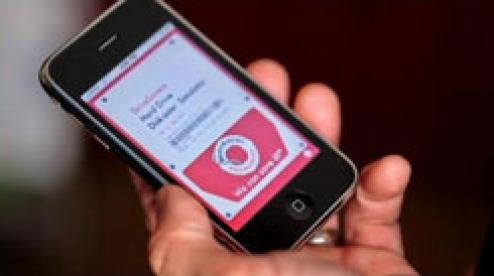The question seems simple: For purposes of the TCPA, who can be liable for making the call at issue? But with new technologies and service providers like YouMail, Glide and TextMe constantly emerging in the marketplace to make person-to-person communication more efficient and cost-effective, the answer to this question is more complicated than ever. The July 10, 2015 FCC Order provided some touchstones for this analysis, but much of the FCC’s language was tailored to the specific petitions before it, leaving open for interpretation how the Order might be applied to different technologies and factual circumstances.

At the outset, the FCC reiterated its long-held position that text messages are “calls” under the TCPA (we’ll save for another day the discussion of how Congress could have intended for the TCPA to include text messages, when that technology did not even exist when the statute was passed). Thus, according to the FCC, systems like YouMail, Glide and TextMe that automatically send text messages may fall within the scope of the TCPA. There is no doubt that these systems provide the technological mechanisms for text messages to be sent, but is simply creating a technology capable of sending text messages enough to make the technology provider a “caller” under the TCPA? Thankfully, even under the FCC’s broad interpretation of the TCPA, the answer is no. To be liable, a person or entity must “initiate” the call—which occurs when someone “takes the steps necessary to physically place a telephone call, and generally does not include persons or entities, such as third-party retailers, that might merely have some role, however minor, in the causal chain that results in the making of a telephone call.”
The FCC Order evaluated the “maker of the call” issue for both text messages and collect call services. With respect to text messages, the FCC looked for “some ‘direct connection between a person or entity and the making of a call.’” Thus, one would examine the “totality of the facts and circumstances” to determine: “1) who took the steps necessary to physically place the call; and 2) whether another person or entity was so involved in placing the call as to be deemed to have initiated it, considering the goals and purposes of the TCPA.”
Applying this test, the FCC found that YouMail does not “initiate” calls when “one of its app users uses its service to send an automatic text in response to a voicemail left by someone who called the . . . app user.” The FCC characterized this service as “reactive” and “tailored,” involving only a response to a call made to the app user and only to the specific caller, not to a group of people in a call campaign. Further, the app users chose whether to send messages in response to calls and were involved in creating/sending the messages. But the FCC’s language focused on an individual message, and the FCC did not specifically address what would happen if the “user” in question was a corporation and the “reactive” messages at issue were automatically sent by a system in bulk (at the request of the corporation) to individuals who had contacted the corporation.
In contrast, the FCC found that a service provider could be liable for “initiating” when it “‘facilitates’ the sending of ‘invitational text messages’” and controls the content of those messages. The FCC denied Glide’s petition because it found that, when the provider sends a text with language of its own choosing, notifying a consumer that an app user wants to share video content through the app, the provider exercises sufficient control over the message to have “initiated” the call. But the FCC granted TextMe’s petition because the invitational text messages in that application required greater involvement by the app user.
The ultimate takeaway from the FCC’s findings on text messaging is that user involvement is key. Applications that send automatic text messages without user intervention may be deemed “initiators,” but the likelihood of such a finding is reduced with increased user involvement in sending the messages. The FCC also found that the service provider’s knowledge about use of the system is important: “whether a person who offers a calling platform service for the use of others has knowingly allowed its client(s) to use that platform for unlawful purposes may also be a factor in determining whether the platform provider is so involved in placing the calls as to be deemed to have initiated them.”
With respect to collect calling, the FCC found that a service provider does not make a separate call for TCPA purposes “when it uses a prerecorded message as part of the process of setting up and connecting a collect call.” Through the service, the provider plays a message advising the called party that a collect call is being placed. The FCC found that, using such prerecorded messages, “on a single call-by-call basis, to provide call set-up information when attempting to connect a collect call” is not within the scope of the TCPA. The FCC also analyzed whether prerecorded follow-up calls made by the collect calling service to set up a billing relationship are covered by the TCPA. The FCC found that calls of that nature to residential telephone lines are not covered by the TCPA, but prior express consent is required by such calls to wireless numbers. The FCC, however, did carve out a specific exemption for calls of this nature to cell phones when the collect call service relates to calls by prison inmates.
If your company uses or provides text or prerecorded voice services, you should evaluate those services with this guidance in mind. Also, in this area, it will be very important to keep an eye on further evolutions in technology.




 i
i


